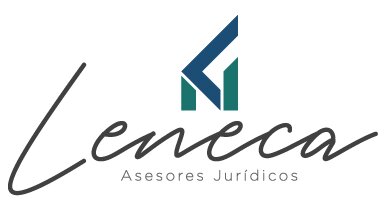Best Hiring & Firing Lawyers in Chia
Share your needs with us, get contacted by law firms.
Free. Takes 2 min.
List of the best lawyers in Chia, Colombia
About Hiring & Firing Law in Chia, Colombia
Hiring and firing practices in Chia, Colombia are governed by national labor legislation, primarily the Colombian Labor Code, as well as specific municipal considerations. Employers and employees both have rights and obligations designed to promote fair treatment and prevent labor disputes. Whether you are looking to hire staff for a business or are facing dismissal, understanding the local legal framework is crucial to ensure compliance and protect your interests.
Why You May Need a Lawyer
Hiring and firing procedures can become complex for both employers and employees in Chia. Legal assistance is often required in situations such as negotiating employment contracts, addressing wrongful termination claims, handling severance payments, drafting dismissal letters, managing disciplinary actions, or resolving disputes with labor unions. Legal professionals can offer valuable guidance to ensure decisions and actions are taken in accordance with the law, minimizing the risk of lawsuits or administrative penalties.
Local Laws Overview
In Chia, as in the rest of Colombia, the primary source of employment law is the Colombian Labor Code. Some of the key aspects include:
- Employment contracts may be fixed-term or indefinite. Each type carries specific rules regarding notification and termination.
- Dismissing an employee requires a valid cause or compliance with due process if the dismissal is without cause, which includes proper notice and payment of severance.
- There are special protections for certain groups, such as pregnant women, union members, and individuals with disabilities, requiring prior authorization from the Ministry of Labor for dismissal.
- Employees have a right to receive full payment of social benefits including severance, interest on severance, legal bonuses, and vacations.
- Hiring foreign workers comes with additional requirements and compliance with immigration regulations.
While these laws apply throughout Colombia, Chia's local administration sometimes issues additional guidance or has local labor inspectorates that play a role in resolving disputes and enforcing regulations.
Frequently Asked Questions
What should be included in an employment contract in Chia, Colombia?
A valid employment contract should outline job duties, salary, working hours, the duration of the contract, workplace location, and benefits. In addition, both parties’ identification and the terms of termination should be specified.
Are probation periods legal, and how long can they last?
Yes, probation periods are allowed. For indefinite and fixed-term contracts, the probation period must not exceed two months, and it must be documented in writing.
Can an employer dismiss an employee without cause?
Employers may terminate employment without cause, but they must provide legal notice and pay all severance and benefits as required by the Labor Code. Special protections may apply to certain employees.
Who needs to authorize the firing of employees with special protections?
The Ministry of Labor must authorize the dismissal of employees who are pregnant, unionized, or have certain disabilities. Dismissal without this authorization is considered null and void.
What is the process for legally terminating an employment contract?
Termination must be justified with cause or, if without cause, must comply with procedural requirements like notice and severance payment. Termination must always be documented, and the employee must receive a detailed settlement.
Are severance payments mandatory?
Yes, except in cases of justified dismissal with cause. The amount depends on the type and duration of the contract and the employee’s salary.
What are the obligations regarding social security and benefits?
Employers must affiliate employees with Colombia’s social security system, which includes health, pension, risks, and family compensation funds. All statutory benefits must be paid in accordance with the law.
How are disputes between employers and employees resolved?
Disputes can be resolved through direct negotiation, mediation, or by filing complaints with the Ministry of Labor. In some cases, matters go to labor courts for resolution.
What are the penalties for not complying with labor laws?
Non-compliance can lead to fines, administrative sanctions, lawsuits, mandatory reinstatement of employees, and payment of damages.
Can contracts be terminated during temporary business closures?
Employers must follow specific legal procedures and may need authorization from the Ministry of Labor to suspend or terminate contracts during closures to avoid future liabilities.
Additional Resources
For individuals and businesses in Chia seeking more information or assistance with hiring and firing procedures, consider reaching out to the following:
- Ministry of Labor (Ministerio de Trabajo) - Regional Office, Chia
- Chia's Public Employment Service (Servicio Público de Empleo - Chia)
- Chamber of Commerce of Bogotá - Chía Office
- Local Bar Associations offering labor law advice
- Non-governmental organizations focused on labor rights
Next Steps
If you are facing a hiring or firing issue in Chia, Colombia, start by documenting all interactions, gathering relevant employment documents, and making notes about your situation. Next, consult with a local labor lawyer or the Ministry of Labor to understand your rights and obligations. Acting quickly ensures you meet any legal deadlines and better protect your interests, whether you are an employer or employee. Professional legal guidance can help clarify complex regulations, negotiate settlements, and represent you in any necessary legal proceedings.
Lawzana helps you find the best lawyers and law firms in Chia through a curated and pre-screened list of qualified legal professionals. Our platform offers rankings and detailed profiles of attorneys and law firms, allowing you to compare based on practice areas, including Hiring & Firing, experience, and client feedback.
Each profile includes a description of the firm's areas of practice, client reviews, team members and partners, year of establishment, spoken languages, office locations, contact information, social media presence, and any published articles or resources. Most firms on our platform speak English and are experienced in both local and international legal matters.
Get a quote from top-rated law firms in Chia, Colombia — quickly, securely, and without unnecessary hassle.
Disclaimer:
The information provided on this page is for general informational purposes only and does not constitute legal advice. While we strive to ensure the accuracy and relevance of the content, legal information may change over time, and interpretations of the law can vary. You should always consult with a qualified legal professional for advice specific to your situation.
We disclaim all liability for actions taken or not taken based on the content of this page. If you believe any information is incorrect or outdated, please contact us, and we will review and update it where appropriate.









